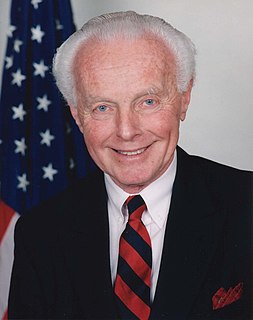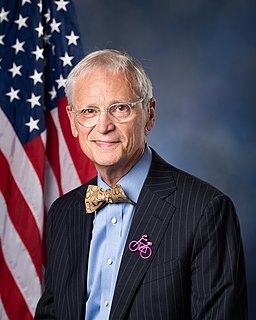A Quote by Jack Keane
What did we want out of Iraq? We wanted a country that was stable and secure, that elected its own government, that was not going to be a threat to its neighbors and also was capable of protecting and defending itself. That was our objective in Iraq.
Related Quotes
It's harder to end a war than begin one. Indeed, everything that American troops have done in Iraq -- all the fighting and all the dying, the bleeding and the building, and the training and the partnering -- all of it has led to this moment of success. Now, Iraq is not a perfect place. It has many challenges ahead. But we're leaving behind a sovereign, stable and self-reliant Iraq, with a representative government that was elected by its people. We're building a new partnership between our nations.
I am very optimistic about - about Iraq. I mean, this could be one of the great achievements of this administration. You're going to see 90,000 American troops come marching home by the end of the summer. You're going to see a stable government in Iraq that is actually moving toward a representative government.
Our President feels, and apparently many in the United Nations Security Council feel, that it is necessary to disarm Iraq before Iraq can again use weapons of mass destruction on her neighbors or she makes some liaison with terrorists who will use these weapons either against Iraq's neighbors or ourselves.
Iraq at one time was actually a functioning government. It's a real state. Afghanistan is not Iraq. It's tribal. It's got a different - a number of different sects, never really had a solid government there running the country on any kind of a continuing basis. Well, to rebuild the nation of Afghanistan is going to be more difficult than rebuilding the nation of Iraq.
Baghdad fell on April 9, 2003, Hussein and his regime were brought down, we declared "Mission Accomplished" and celebrated victory . . . and chaos erupted. We did not assert control and authority over the country, especially Baghdad. We did not bring with us the capacity to impose our will. We did not take charge. And Iraq did not in a few weeks magically transform itself into a stable nation with democratic leaders. Instead a raging insurgency engulfed the country.
The Western alliance should have supported the Sunni opposition against the Assad regime from the beginning. As far as Iraq is concerned, if it had stayed stable the way it was in 2008, IS would not have been able to expand in Iraq the way they did. The mistake was that Barack Obama withdrew the armed forces from Iraq too fast.
I opposed the war in Iraq because I did not believe it was in our national security interest, and I still don't. What we [America] did was akin to taking a baseball bat to a beehive. Our primary security threat right now is terrorism - and by doing what we did in Iraq, we've managed to alienate a good part of the world and most of the allies whose intelligence and other help we need to combat and defeat terrorism.
If you're coming from America to Iraq, then how are you supposed to be objective? I mean, you could pay lip service to being objective, but how are you going to objective when you're embedded with the Marines? The Marines are saving your life every day and they're protecting you. But when you're sort of living with people who are there, we just press record and let them tell the story.


































